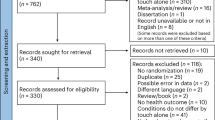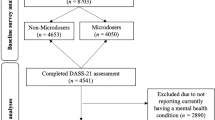Abstract
Objective:
In both the United States and United Kingdom, countries with high prevalence of obesity, weight gain is particularly rapid in young adulthood and especially identified among first-year students.
Design:
A triangulation protocol was used, incorporating quantitative and qualitative research methods. A 27-question online survey was sent to all first-year undergraduates twice, with a 9-month interval. An online focus group was conducted at the end of the year, analysed by content and thematically. Self-reported weights and heights were validated against objectively measured data.
Results:
From a total of 3010 first-year students, 1440 (female=734) responded at baseline mean (s.d.) age 20 (3.6) years, body mass index 22.3 (4.6) kg m−2, 17% smokers and 80% alcohol drinkers. At follow-up, 1275 students reported a mean weight change of 1.8 (s.d. 2.6) kg over the 9-month period. Self-reported data correlated strongly with measured weights (r=0.999, P<0.001) and heights (r=0.998, P<0.001). Predictors of weight gain were baseline weight (P<0.001). Dairy products consumption was associated with less weight gain (P<0.001). Fruit and vegetable consumption, and time spent on physical activity or sleeping were associated with neither weight gain nor weight loss. Focus group content analysis revealed weight gain as a major concern, reported by half the participants, and increased alcohol consumption was considered the most common lifestyle change behind weight gain. Thematic analysis identified three main themes as barriers to or facilitators of healthy lifestyles and weight; budget, peer influence and time management.
Conclusions:
Rapid weight gain is of concern to young adults. Students living away from home are at particular risk, owing to specific obesogenic behaviours. Consumption of fruit and vegetables, and physical activity, despite popular beliefs, were not associated with protection against weight gain.
This is a preview of subscription content, access via your institution
Access options
Subscribe to this journal
Receive 12 print issues and online access
$259.00 per year
only $21.58 per issue
Buy this article
- Purchase on Springer Link
- Instant access to full article PDF
Prices may be subject to local taxes which are calculated during checkout


Similar content being viewed by others
References
Lobstein T, Leach R . International comparisons of obesity trends, determinants and responses. Evidence Review. Foresight Tackling Obesities: Future Choices 2007. http://www.foresight.gov.uk.
Vlassopoulos A, Combet E, Lean ME Changing distributions of body size and adiposity with age. Int J Obes (Lond) 2013; 38: 857–864.
Lean ME, Katsarou C, McLoone P, Morrison DS Changes in BMI and waist circumference in Scottish adults: use of repeated cross-sectional surveys to explore multiple age groups and birth-cohorts. Int J Obes (Lond) 2013; 37: 800–808.
Scottish Health Survey 2011 http://www.scotland.gov.uk/Publications/2011/10/1138/0 (last assessed 27 January 2013).
Nikolaou CK, Lean MEJ, Hankey CR Weight and lifestyle changes in first year students in Scotland: the heal pilot study. Obes Rev 2011; 12: 63–279.
Pope C, Mays N Qualitative research: reaching the parts other methods cannot reach: an introduction to qualitative methods in health and health services research. BMJ 1995; 311: 42.
O’Cathain A, Murphy E, Nicholl J Three techniques for integrating data in mixed methods studies. BMJ 2010; 341: C4587.
Braun V, Clarke V Using thematic analysis in psychology. Qual Res Psychol 2006; 3: 77–101.
Mihalopoulos NL, Auinger P, Klein J The freshman 15: is it real? J Am Coll Health 2008; 56: 531–533.
Provencher V, Polivy J, Wintre MG, Pratt MW, Pancer SM, Birnie-Lefcovitch S et al. Who gains or who loses weight? Psychosocial factors among first-year university students. Physiol Behav 2009; 96: 135–141.
Anderson DA, Shapiro JR, Lundgren JD The freshman year of college as a critical period for weight gain: an initial evaluation. Eat Behav 2003; 4: 363–367.
Delinsky SS, Wilson GT . Weight gain, dietary restraint and disordered eating in the freshman year of college. Eat Behav 2008; 9: 82–90.
Cluskey & Grobe. College weight gain and behavior transitions: male and female differences. J Am Diet Assoc 2009; 109: 325–329.
Pliner P, Saunders T . Vulnerability to freshman weight gain as a function of dietary restraint and residence. Physiol Behav 2008; 93: 76–82.
Lowe MR, Annunziato RA, Didie E, Bellace DL, Ridell L, Maille C et al. Multiple types of dieting prospectively predict weight gain during the freshman year of college. Appetite 2006; 47: 83–90.
Yakusheva O, Kapinos K, Weiss M Peer effects and the freshman 15: evidence from a natural experiment. Econ Hum Biol 2011; 9: 119–132.
Kapinos KA, Yakusheva O . Environmental Influences on Young Adult weight gain Evidence From a Natural Experiment. J Adolesc Health 2011; 48: 52–58.
Jung ME, Bray SR, Martin Ginis KA Behaviour change and the freshman 15: tracking physical activity and dietary patterns in 1st-year university women. J Am Coll Health 2008; 56: 523–530.
Butler SM, Black DR, Blue CL, Gretebeck RJ Change in diet, physical activity, and body weight in female college freshman. Am J Health Behav 2004; 28: 24–32.
Economos CD, Hildebrandt ML, Hyatt RR College freshman stress and weight change: Differences by gender. Am J Health Behav 2008; 32: 16–25.
Levitsky DA, Halbmaier CA, Mrdjenovic G The freshman weight gain: a model for the study of the epidemic of obesity. Int J Obes 2004; 28: 1435–1442.
Morrow ML, Heesch KC, Dinger MK, Hull HR, Kneehans AW, Fields DA Freshman 15: fact or fiction. Obesity 2006; 14: 8.
Vella-Zarb RA, Elgar FJ The ‘freshman 5’: a meta-analysis of weight gain in the freshman year of college. J Am Coll Health 2009; 58: 161–166.
Serlahious A, Hamer M, Wardle J Stress and weight change in university students in the United Kingdom. Physiol Behav 2007; 92: 548–553.
Lewis CE, Jacobs DR, McCreath H, Kiefe CI, Schreiner PJ, Smith DE et al. Weight gain continues in the 1990s: 10-year trend in weight and overweight from the CARDIA study. Am J Epidem 2000; 151: 1172–1181.
Kratz M, Baars T, Guyenet S The relationship between high-fat dairy consumption and obesity, cardiovascular, and metabolic disease. Eur J Nutr 2012; 52: 1–24.
Greaney ML, Less FD, White AA, Dayton SF, Riebe D, Blissmer B et al. College students’ barriers and enablers for healthful weight management: a qualitative study. J Nutr Educ Behav 2009; 41: 281–286.
Greenbaum TL Internet focus groups: an oxymoron. Market News 1997; 31: 35–36.
Eysenbach G, Wyatt J Using the internet for surveys and health research. J Med Internet Res 2002; 4: e13.
Wright KB . Researching internet-based populations: Advantages and disadvantages of online survey research, online questionnaire authoring software packages, and web survey services. J Comput Mediat Commun 2005; 10: 3.
Hilton S, Patterson C, Teyhan A Escalating coverage of obesity in UK Newspapers: the evolution and framing of the “obesity epidemic” from 1996 to 2010. Obesity 2012; 20: 1688–1695.
Author information
Authors and Affiliations
Corresponding author
Ethics declarations
Competing interests
The authors declare no conflict of interest.
Rights and permissions
About this article
Cite this article
Nikolaou, C., Hankey, C. & Lean, M. Weight changes in young adults: a mixed-methods study. Int J Obes 39, 508–513 (2015). https://doi.org/10.1038/ijo.2014.160
Received:
Revised:
Accepted:
Published:
Issue Date:
DOI: https://doi.org/10.1038/ijo.2014.160
This article is cited by
-
Turning the tables on obesity: young people, IT and social movements
Nature Reviews Endocrinology (2020)
-
Dietary patterns of university students in the UK: a cross-sectional study
Nutrition Journal (2018)
-
Are young adults appreciating the health promotion messages on diet and exercise?
Journal of Public Health (2018)
-
Freshman 15 in England: a longitudinal evaluation of first year university student’s weight change
BMC Obesity (2016)
-
Process evaluation of TXT2BFiT: a multi-component mHealth randomised controlled trial to prevent weight gain in young adults
International Journal of Behavioral Nutrition and Physical Activity (2016)



